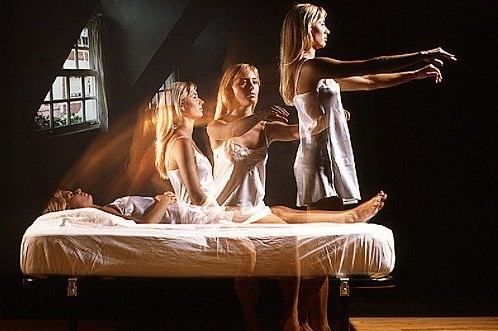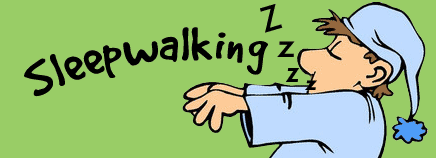EU sleepwalked into Ukraine crisis due to poor understanding of Russia – UK House of Lords
… from Russia Today, Moscow

[ Editor’s Note: My my, what a Christmas in February present with this House of Lords 123 page report verifying VT’s editorial position on the Ukraine Crisis in spades.
I must say though, I was surprised, but they were commenting on the EU’s failure, not their own…the House of Lords, when Downing Street has been an anti-Russian hype-meister all along.
Cameron is doing a huffing and puffing number with the latest claim that Russia is a threat to the Baltics for flying its planes on training mission in international airspace, something that has gone on for many years now with no comment. It is now magically “aggression”…when I am not aware of Moscow having overthrown a European government or planning to do so.
The British political elites just don’t have the manipulation skills they used to have. But the people themselves continue to display great skill in picking out the best liars from their political class to lead them.
I have only read the highlights of this Lords’ report, needing the weekend to absorb it all, but I have not seen a word about the US involvement in their “sleep walking” yellow brick road tour.
Nuland giving out her poison foreign policy cookies on the MaidanOn the contrary, the US has known exactly what it was doing since it was paying for it all. Thank you Ms. Nuland, for the $5 billion figure, and say hello to your NeoCon-Zionist husband for us all.
As the EU counties work to extricate themselves from domestic political blowback on the Ukraine disaster, expect to see German Intelligence providing us juicy drops on the US plan to use Ukraine and the EU as cannon fodder.
After the Munich conference we are seeing conciliatory statements already. The shift is already into stage two.
General Breedlove comes off as a clown, and a scar on Obama’s leadership as the NATO commander is always a presidential pick. But in his defense Breedlove is pushing the group policy of the Obama administration. And yes, he has had bipartisan support from Congress, with the NeoCon Republicans as bedfellows. We could do quite a sit-com series on that irony… Jim W. Dean ]
__________________________
– First published … February 20, 2015 –
The EU ‘sleepwalked’ into the Ukrainian crisis after a failure to address Moscow’s concerns over Western policies, a UK parliamentary report says. Europeans suffer from poor analytic capacity when it comes to Russia.
The scathing report on the causes and the future of the Ukrainian debacle and Russia-West divide was prepared by the House of Lords, European Union Committee tasked with considering UK’s participation in EU matters.
The report identified policies in both Russia and EU and its member states that prevented them from engaging in dialogue and building trust between each other. Europeans are particularly guilty of lacking analytical capacity to properly understand Russia and predict its responses to EU’s actions.
“There has been a decline in Member States’ analytical capacity on Russia. This has weakened their ability to read the political shifts and to offer an authoritative response. Member States need to rebuild their former skills,” the report said.
“There is also a reduced emphasis on the importance and role of analytical expertise in the FCO (Foreign and Commonwealth Office, UK’s Foreign Ministry). The FCO should review how such skills could be renewed and how analysis can feed into decision-making processes,” the report added.
As a result,“an element of ‘sleep-walking’ was evident in the run-up to the crisis in Ukraine, and important analytical mistakes were made by the EU. Officials in Brussels as well as Member States’ embassies all participate in the EU foreign policy process, but all seem to have missed the warning signs.”
Russia’s security concerns genuine
The Lords say Western policies towards Russia didn’t acknowledge the genuine concern about the enlargement of NATO.
“For the Russians NATO is seen as a hostile military threat, and successive rounds of NATO’s eastern enlargement have, as the Russians see it, brought it threateningly close to the Russian border. EU enlargement, as it has become conflated with NATO enlargement, has also taken on the aspect of a security threat,” the document said.
“Russian security threat perceptions of NATO have to be acknowledged, and also challenged, in any discussions on European security,” the report recommended.
Russians see the eastwards enlargement of the EU as a process parallel with NATO expansion, the report points out. So the European drive to get Ukraine into the Eastern Partnership program was viewed as not only an attack on Russian economic interests in Ukraine, but also on its national security.
The quick move towards renouncing Ukraine’s military non-alliance status by the new authorities in Kiev, which took power from President Yanukovich in February 2014, strengthened this assessment.
Unrealistic expectations of Eastern Partnership
Economically there was also lack of proper communication between the EU and Moscow in the run-up to the Ukrainian crisis, the report said. The events in Ukraine were triggered by the EU Association Agreement, a free-trade treaty that Brussels wanted Kiev to sign and which the former Yanukovich government chose to postpone. Russia opposed the deal, saying it would hurt its trade with Ukraine and damage the latter’s economy.
“Collectively, the EU overestimated the intention of the Ukrainian leadership to sign an Association Agreement, appeared unaware of the public mood in Ukraine and, above all, underestimated the depth of Russian hostility towards the Association Agreement,” the report said, adding that Europeans “did not connect the dots” in this case.
The pursuit of the agreement with Ukraine and the entire Eastern Partnership program, which is aimed in integrating Russia’s neighbors closer with the EU are causing turmoil, and the EU is partly to blame, the report suggests.
“There is an unresolved tension between the offer of [EU] membership on the table to Eastern Partnership countries and the political will of Member States to follow through, which is not uniform. This creates unrealistic expectations, and complicates Russia’s relationship both with these countries and with the EU,” the report said. “Member States must clarify whether EU membership is on offer.”
The British Lords acknowledge that “Moscow has a right not to be excluded from the eastern neighborhood” and recommended that the EU engaged “in a fundamental reassessment of their strategic interests” there.
Long-term sanctions withdrawal required
The report approved EU’s sanction policy towards Russia over the Ukrainian crisis, but says a proper long-term exit strategy is needed.
“There is no evidence that sanctions have caused [Russian] President Putin to shift his stance on Crimea, where Russia has direct and vital security interests through the Sevastopol naval base,” the document states.
“In the long term, three-tier sanctions are detrimental to the EU’s interests as well as to Russia’s. While they could be renewed in the short term, the prospect of the progressive removal of sanctions should be part of the EU’s negotiating position. Genuine progress by Russia in delivering the ceasefire in eastern Ukraine should be the basis for ratcheting down sanctions.”
The report suggests that resolving the legal status of Crimea should be postponed until more urgent matters of stopping the violence in Ukraine and helping its ailing economy are addressed.
“There is no evidence that sanctions have caused [Russian] President Putin to shift his stance on Crimea, where Russia has direct and vital security interests through the Sevastopol naval base,” the document states.
“In the long term, three-tier sanctions are detrimental to the EU’s interests as well as to Russia’s. While they could be renewed in the short term, the prospect of the progressive removal of sanctions should be part of the EU’s negotiating position. Genuine progress by Russia in delivering the ceasefire in eastern Ukraine should be the basis for ratcheting down sanctions.”
The report suggests that resolving the legal status of Crimea should be postponed until more urgent matters of stopping the violence in Ukraine and helping its ailing economy are addressed.

Jim W. Dean was an active editor on VT from 2010-2022. He was involved in operations, development, and writing, plus an active schedule of TV and radio interviews.
ATTENTION READERS
We See The World From All Sides and Want YOU To Be Fully InformedIn fact, intentional disinformation is a disgraceful scourge in media today. So to assuage any possible errant incorrect information posted herein, we strongly encourage you to seek corroboration from other non-VT sources before forming an educated opinion.
About VT - Policies & Disclosures - Comment Policy





